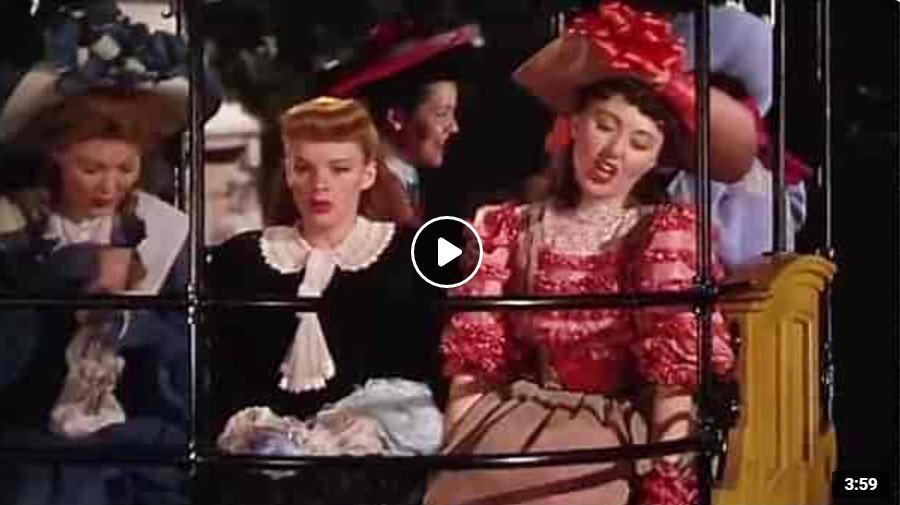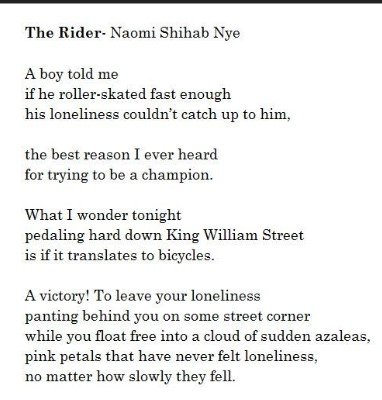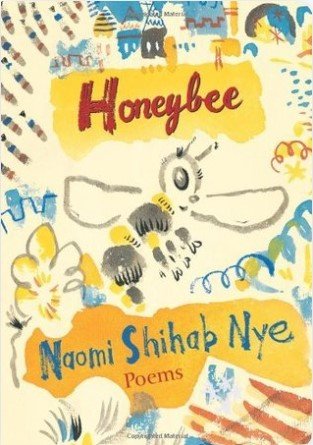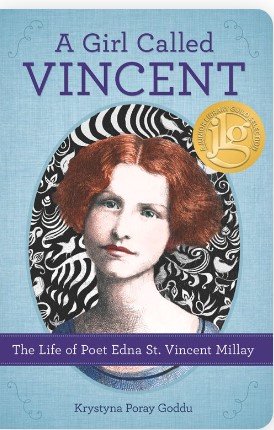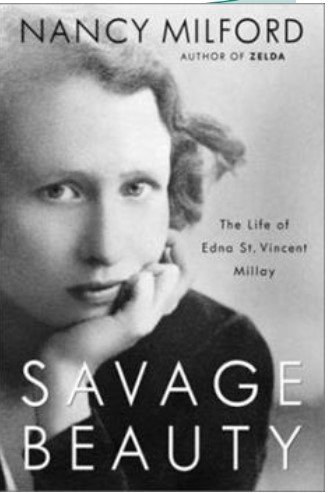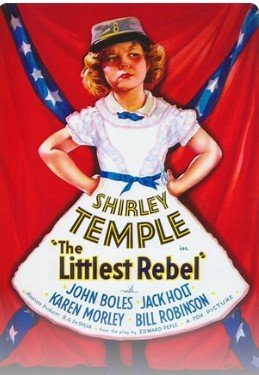Poetry Challenge #290-Maya, I Will Rise!
Judy Garland may have sung “Clang-Clang-Clang goes the trolly” but Maya made that trolly GO! Today we celebrate the birthday of San Francisco’s first female streetcar conductor—an African American woman to boot—Maya Angelou!
Maya Angelou , born Marguerite Ann Johnson in St. Louis, Missouri. She had a tough life which provided plenty of fodder for her National Book Award nominated, Pulitzer Prize Awarded, Grammy Winning, mostly autobiographical novels, essays, and poems.
Here’s a bit of “Life Doesn’t Frighten Me” to give you a sense of this sensational woman:
When Maya was 15 she applied for the job of streetcar conductor. Plenty of boys her age were doing the job as were women. But because she was Black, she was rejected. Every day for three weeks she returned requesting a new application. Finally the company relented. She applied again (gave her age as 19) and thus became the first African American woman to work as a streetcar conductor in San Francisco.
Cabaret Singer
After that she was married, had a son, Guy Johnson, worked all sorts of jobs.
Her writing career took off after she joined the Harlem Writers Guild in 1959.
In 1993, Maya became the first person since Robert Frost in 1961, to recite a poem “On the Pulse of Morning,” at a President’s Inauguration.
Poetry Challenge #290
Maya, I Will Rise!
Maya Angelou’s wrote in a direct and informal voice.
Her stories are welcoming for readers as she is inviting them to share her secrets with them. She also used “persuasive and strong similes and metaphors.” www.litpriest.com
Choose a metaphor to describe an aspect of who you are.
Write an autobiographical poem using that metaphor. For example, in her first autobiographical novel, “I Know Why The Caged Bird Sings,” Maya Angelou compared herself to a caged bird.
Begin as Maya did with the words, “I know why” . . .
Set Your Timer for 7 Minutes
Start Writing!
Don’t Think About it, Write It!
Cindy Faughnan and I began this 7-Minute Poetry Challenge 2400+ days ago. Now we take turns creating prompts to share with you. Our hope is that creatives—children & adults—will use our prompts as springboards to word play time. If you join us in the Challenge, let us know by posting the title, a note, or if you want, the whole poem in the comments.
Click on Fishbowl link and sign up to receive email notifications from Kelly's blog (aka The Fishbowl):
All who subscribe, comment or share a poem will be entered in . . .
Poetry Challenge #287-Not the Junk Drawer!
Happy Birthday, Naomi Shihab Nye! (A few slices of cake late and all the cheerier for it!)
Born, March 12, 1952, Naomi composed her first poems when she was 6.
This link will take you to the Poetry Foundation’s page and has links to many poems.
She’s an excellent poet, novelist, and essayist—entertaining and accessible. Doubt me?
Naomi Shihab Nye—who, BTW, lives in San Antonio Yeeeehaw!—served as Poetry Foundation's Young People's Poet Laureate from 2019-2022 (the first Arab American to be chosen) and kids don’t suffer fools!
To get your started, below is a personal favorite titled “The Rider.”
“the primary source of poetry has always been local life, random characters met on the streets, our own ancestry sifting down to us through small essential daily tasks.”
Poetry Challenge #287
Not the Junk Drawer!
For today’s poem, choose a title of one of Naomi Shihab Nye’s poems listed below and write your own poem. (Titles taken from Nye’s collection entitled Honeybee.)
Someone You Will Not Meet
A Stone So Big You Could Live in It
The Frogs Did Not Forget
How We Talk About It We Are the People
Argument
Set Your Timer for 7 Minutes
Start Writing!
Don’t Think About it, Write it!
For a treat, find one of Naomi Shihab Nye’s collections—Honeybee maybe— and read!
Cindy Faughnan and I began this 7-Minute Poetry Challenge 2400+ days ago. Now we take turns creating prompts to share with you. Our hope is that creatives—children & adults—will use our prompts as springboards to word play time. If you join us in the Challenge, let us know by posting the title, a note, or if you want, the whole poem in the comments.
Click on Fishbowl link and sign up to receive email notifications from Kelly's blog (aka The Fishbowl):
All who subscribe, comment or share a poem will be entered in . . .
Poetry Challenge #286-There is Always Light
Amanda Gorman was the first person to be named “National Youth Poet Laureate”
in 2017. In 2021 at President Joe Biden’s inauguration, she delivered her poem, “The Hill We Climb” as the youngest inaugural poet. She was 22 (March 7th is her birthday!)
Her words touched the nation and the world. People read and reread her work.
You can watch her at the inauguration here:
Amanda Gorman performing “The Hill We Climb.”
Poetry Challenge #285
There is Always Light
One of Amanda Gorman’s most quoted lines is:
“There is always light. If only we’re brave enough to see it. If only we’re brave enough to be it.”
Think about the light you would like to see in our world. How can you be “brave enough to be it”?
Write a poem detailing what needs to happen. Make it a call to action. Use strong words and phrases.
Be sure to read it aloud with feeling!
Set Your Timer for 7 Minutes
Start Writing!
Don’t Think About it, write the light!
Amanda Gorman’s inauguration poem The Hill We Climb has been published as a book. So has Change Sings (above) which is lovely. And that’s not all. Find out more on her website: Amanda Gorman Books.
Cindy Faughnan and I began this 7-Minute Poetry Challenge 2400+ days ago. Now we take turns creating prompts to share with you. Our hope is that creatives—children & adults—will use our prompts as springboards to word play time. If you join us in the Challenge, let us know by posting the title, a note, or if you want, the whole poem in the comments.
Click on Fishbowl link and sign up to receive email notifications from Kelly's blog (aka The Fishbowl):
All who subscribe, comment or share a poem will be entered in . . .
Poetry Challenge #285-Would You? Could You?
Parents hide them, children love them, editors warn “don’t try them,” today we celebrate them. What are they?
Dr. Seuss’s rhyming picture books. Thank you Dr. Seuss for the most stick-in-your-head read-it-again books of all time! And Happy Birthday! (March 2, 1904-Sept. 24, 1991.)
Do you like my hat? I do! I do!
Dr. Seuss was not his real name, nor was he a real doctor. Dr. Seuss is the pen name for Theodor Geisel. “Seuss” was his mother’s maiden name.
“Ted” Geisel was an illustrator and an editor who challenged himself to write an entertaining primer from a set word list as a sort of protest against boring primers such as the Dick and Jane reading books. The story goes that he was given the word list, chose the first two he found that rhymed: cat and hat, and the first few lines came to him while in an elevator. The rest is millions of copies of one of the longest sing-songiest, beloved picture books of all time. Guess the title?
You guessed it! The Cat in the Hat, published in 1967.
Writers take heart: Seuss’s first picture book, And to Think That I Saw It on Mulberry Street* published in 1937, was first rejected 27 times. He even has a star on the ‘Hollywood Walk of Fame’ at the 6500 block of Hollywood Boulevard.
“Adults are obsolete children . . .”
Poetry Challenge #285
Would you, could you . . .
Choose a concept: colors, weather, prepositions, numbers, adventure, art, A.I, bedtime . . . and explore it in a rhyming poem—a singsong, rhyming, predictably-patterned poem. The kind of poem Dr. Seuss might have written.
In fact, if you’d like, choose a stanza or two from one of your favorite Dr. Seuss books and copy its rhyming pattern—after all, imitation is the highest form of flattery!
One fish, two fish, red fish blue fish.
I do not like green eggs and ham. I do not like them Sam I am.
If you’re stuck coming up with end rhymes, don’t stress it. If Dr. Seuss could make up words and rhyme one word with itself over and over and over and over—you can too!
Set Your Timer for 7 Minutes
Start Writing!
Don’t Think About it, Seuss it!**
**With cultural sensitivity please!
*And to Think That I Saw It on Mulberry Street* is one of 6 titles Dr. Seuss Enterprises has ceased publishing because of insensitive and racist imagery.
Cindy Faughnan and I began this 7-Minute Poetry Challenge 2500+ days ago. Now we take turns creating prompts to share with you. Our hope is that creatives—children & adults—will use our prompts as springboards to word play time. If you join us in the Challenge, let us know by posting the title, a note, or if you want, the whole poem in the comments.
Click on Fishbowl link and sign up to receive email notifications from Kelly's blog (aka The Fishbowl):
All who subscribe, comment or share a poem will be entered in . . .
Poetry Challenge #284-Play Like Millay
In 1912, when Edna St. Vincent Millay was 19, she entered a poetry contest with her poem “Renascence” which begins, “All I could see from where I stood”. She was given 4th place—and no prize. When the contest entries were published, many people felt Millay’s poem was better than the three men who had won money.
But, maybe losing the contest was the best thing for young Millay. Because people were outraged, she received national publicity.
She was invited to give a poetry reading in Maine where a wealthy woman became her benefactor and sent her to college.
In 1923, Millay won a Pulitzer Prize for poetry.
Edna St. Vincent Millay was the first woman and second person to win the award. Take that silly contest judges!
She won for her poem "Ballad of the Harp-Weaver” from the collection A Few Figs in the Thistle, published Jan 1, 1920. That’s prize winner isn’t even the most well-known poem in the collection; this is:
‘First Fig‘ was published in A Few Figs From Thistles.
Poetry Challenge #284
Play like Millay!
Because it’s her birthday, February 22 (1892-1950), let’s play!
Pick a line from a poem by Edna St. Vincent Millay and write your own poem from that line. Here are some lines from Edna St. Vincent Millay’s poems:
All I could see from where I stood
What lips my lips have kissed, and where, and why
Time does not bring relief; you all have lied
I know what my heart is like
To what purpose, April, do you return again?
Set Your Timer for 7 Minutes
Start Writing!
Don’t Think About it, Play like Millay!
Edna St. Vincent Millay was a fascinating character. Here are 2 excellent biographies about her. A Girl Called Vincent for young readers & Savage Beauty for everyone else!
Cindy Faughnan and I began this 7-Minute Poetry Challenge 2400+ days ago. Now we take turns creating prompts to share with you. Our hope is that creatives—children & adults—will use our prompts as springboards to word play time. If you join us in the Challenge, let us know by posting the title, a note, or if you want, the whole poem in the comments.
Click on Fishbowl link and sign up to receive email notifications from Kelly's blog (aka The Fishbowl):
All who subscribe, comment or share a poem will be entered in . . .
Poetry Challenge #283-Mughal Princess Poetry
There are princesses among us, walking, talking, working—using royal for good now* and then 350 years ago, confined to life behind harem walls writing poetry!
Imagine Zeb-un-Nisa*, a Mughal princess born Feb 15, 1638, wrote poetry that, centuries later is still being read, translated, published!
“Impatient were my hands , and in their haste
Never could they untie the knot of fate ,
So vain it is to wail my life laid waste,
My hours unfortunate .
And strange it is that even in my heart
The sweet tormenting flame of my desire
Is; quenched; impatiently I pulled apart
The brands and killed the fire
And never did the blossoms of success
Within my hope’s enchanted garden bloom
And my fair beacon-light of happiness
Is sunk in gloom
Faithless Beloved, many friends are Thine
So many love and have been loved by Thee,
They give their hearts, what cares Thou for mine
What need hast Thou of me”
Zeb-un-Nisa means “Jewel among Women.” She was the eldest daughter of Prince Muhi al-Din Muhammad (the future Emperor Aurangzeb) and his first wife and chief consort, Dilras Banu Begum. Her grandfather was Emperor Shah Jahan—yes, the one who built the Taj Mahal! (If you’d like to learn more about the Mughal empire, Shah Jahan & the love of his life and why the Taj Mahal came to be, read Taj by Timeri N. Murari, told partly from the viewpoint of a stone cutter building the Taj.)
As happens among Royals, turmoil, strife, back biting and in-fighting ensued. Zeb-un-Nisa was imprisoned (not sure how different that was from “confined in harem”) and died in 1702. But that’s not what this is about.
This is about how, in the midst of it all, Zeb-un-Nisa sequestered in the royal harem, wrote poetry, and impudent imp that she was, “used to secretly participate in hidden literary and poetry parties.”…As the years passed Zeb-un-Nisa began to write under the pen name Makhfi meaning “the hidden one. In all, Zeb-Un-Nisa is said to have written more than 15,000 verses.
What’s amazing, and cause enough to celebrate her, is that centuries later, her poetry is still be read, translated & published!
Poetry Challenge #283
Mughal Princess Poetry
Take a moment to read one of Zeb-un-Nisa’s poems. Notice how the translators took care to maintain the old world feel of the poem through language and rhyme scheme.
Choose a few lines or stanza from one of Princess Zeb-un-Nisa’s poems. Using the princess’s words as inspiration, see if you can’t use modern phrasing, line breaks, images to update the poem from the 17th Century to the 21st Century while still evoking the same feelings and sentiment.
Set Your Timer for 7 Minutes
Start Writing!
Don’t Think About it, write it!
*Carrie Pearson’s forthcoming picture book, Real Princesses Change the World features real-life modern royals working, inventing, striving!
Cindy Faughnan and I began this 7-Minute Poetry Challenge 2400+ days ago. Now we take turns creating prompts to share with you. Our hope is that creatives—children & adults—will use our prompts as springboards to word play time. If you join us in the Challenge, let us know by posting the title, a note, or if you want, the whole poem in the comments.
Click on Fishbowl link and sign up to receive email notifications from Kelly's blog (aka The Fishbowl):
All who subscribe, comment or share a poem will be entered in . . .
Poetry Challenge #282-The Littlest Rebel
Kate Chopin, did not lead a life in keeping with prim Victorian images of her captured on film.
Born Katherine O’Flaherty, in St. Louis, Missouri on Feb. 8, 1805, Kate had, as they say, the fiery temperament of a redhead (although whether she actually was a redhead, is hard to tell), and as a young girl, she earned a reputation as the "Littlest Rebel" when she tore down a Union flag that had been tied to her front porch by Yankee soldiers.
In spite of her “wild streak” (or maybe because of it—she was involved with those suffragettes after all) Kate was popular in St. Louis society. At 19, she married Oscar Chopin, a twenty-five-year-old French-Creole businessman who whisked her off to Louisiana. Despite relatives who warned him not to, Oscar “treated Kate as an intellectually equal, and didn’t mind that she smoked, drank, and behaved as her own person.”
The Awakening was considered dreadfully immoral at the time, although The NY Times praised her writing.
Fortunately for fans of her work—unfortunately for Kate and her six children—Oscar died of Swamp fever when our Kate was 33. She returned to St. Louis, took up the pen, and wielded it boldly.
Kate Chopin is considered one of the first feminist authors of the 20th century. Her second and last novel Awakening (published in 1899; rediscovered in the 1950s), is her most famous work, as well as the most infamous. Although she never published another novel, Chopin wrote about 100 short stories and poem, too, Here’s one example:
Poetry Challenge #282
Littlest Rebel
Notice how Kate began each stanza of “By the Meadow Gate” with the same line, and ends it with an echo?
For this prompt, use all of part of the first line of “By the Meadow Gate” as the first line of your poem. And, just as she did, begin and end the stanza (or stanzas) the same way.
However, in celebration of Kate Chopin’s wild streak, unlike her sweet poem, let yours veer as far as you dare to the wild side!
Set Your Timer for 7 Minutes
Start Writing!
Don’t Think About it, Write it!
Wonder if this movie starting Shirley Temple was inspired by Kate Chopin? Might have to rewatch it and see!
Cindy Faughnan and I began this 7-Minute Poetry Challenge 2400+ days ago. Now we take turns creating prompts to share with you. Our hope is that creatives—children & adults—will use our prompts as springboards to word play time. If you join us in the Challenge, let us know by posting the title, a note, or if you want, the whole poem in the comments.
Click on Fishbowl link and sign up to receive email notifications from Kelly's blog (aka The Fishbowl):
All who subscribe, comment or share a poem will be entered in . . .
Poetry Challenge #281-Judicious Pruning
In my current silly state of mind, couldn’t resist riffing off of a Cole Porter standard* to introduce today’s prompt. After all, it’s February 2nd—Groundhog’s Day—and whether or not that frisky little fellow scurried back inside or not, Spring is just around the corner.
“Gardeners do IT!
Chef’s do IT!
Even top excec-u-ets do IT!
Let’s do it! Let’s . . . ”
There are many weak words in the English language. Anytime you want to strengthen your writing, look for them and delete them. I keep a list to refer to, and add to this list whenever I notice words I overuse.
You might start out with this list:
Cutting away the chaff is especially helpful in a poem where you don’t have many words. Each word must help convey the picture/feeling/sound that you are trying to get. Words that are more specific are stronger because they help the reader create a clearer picture.
Poetry Challenge #281
Judicious Pruning
Find a poem you’ve written that has a feeling you like. Use the following steps to see whether you can make it better.
1) Read the poem and watch for words used more than once. Can you change these words?
2) Check for each of the weak words listed above. (Feel free to add other words that you think are weak.) Delete these weak words and rewrite the line as needed.
3) Look for your nouns (People, places, or things). Is there a better word that creates a more specific picture?
4) Are you using sound? Watch for repeating sounds or see where you can add some.
5) Read your poem aloud.
6) Have someone else read your poem aloud while you listen.
Set Your Timer for 7 Minutes
Start Writing!
Don’t Think About it, Chop-Chop-Chop!
*Did you recognize which Cole Porter song inspired the riff? Send the title in the comments and you’ll be entered in the next quarter’s Winner-Winner Chicken Dinner Giveaway!
Cindy Faughnan and I began this 7-Minute Poetry Challenge 2400+ days ago. Now we take turns creating prompts to share with you. Our hope is that creatives—children & adults—will use our prompts as springboards to word play time. If you join us in the Challenge, let us know by posting the title, a note, or if you want, the whole poem in the comments.
Click on Fishbowl link and sign up to receive email notifications from Kelly's blog (aka The Fishbowl):
All who subscribe, comment or share a poem will be entered in . . .



